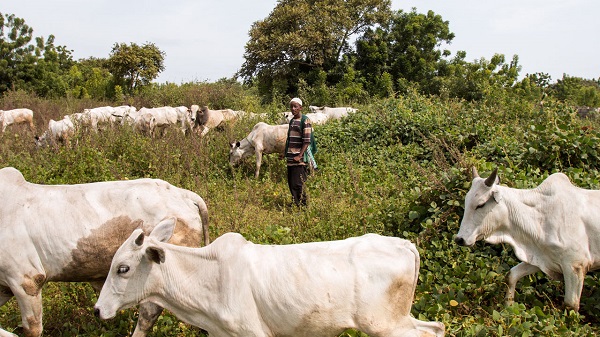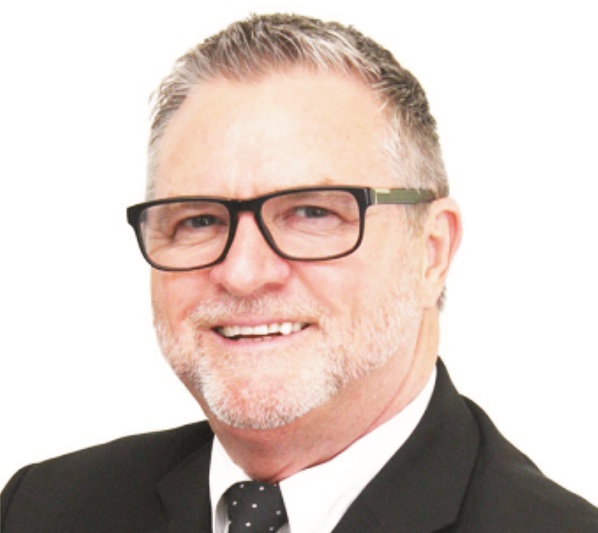Using CSR To Drive Value Creation

In the words of Ban Ki-moon, UN Secretary General, “Sustainable development is the pathway to the future we want for all. It offers a framework to generate economic growth, achieve social justice, exercise environmental stewardship and strengthen governance.” This implies that every responsible organisation must have its eyes firmly fixed on the evolution of processes that endure. It also follows that, at the marketplace, such an organisation must be making contributions towards sustainable development as a whole, and to value creation in economic, environmental and social terms.
Reason FBN-Holdings’, Corporate Responsibility and Sustainability (CRS) is not just about financing economic activity in a responsible way, but goes to encompass transparency and integrity in the conduct of business processes to ensure an inclusive, positive impact on the communities where it operates and the society.
This approach, tagged ‘the Citizenship Approach’ by the Group, is captured in its corporate responsibility policy, which clearly outlines FBN-Holdings’ commitments and approach to corporate responsibility, as well its CRS governance framework.
The Group’s sustainability efforts are enhanced by key enablers like CSR capacity development, stakeholder management, partnerships and communications and CSR performance management. In pursuit of this CSR capacity development, the Group has striven to invest effort and resources in the development of relevant policies, processes and tools, skills and capabilities to achieve the Group’s sustainability and business objectives. There have also been efforts at building trust through effective stakeholder engagement, providing actionable performance data, producing sustainability reports and effectively managing performance, all aimed at achieving the Group’s sustainability priorities.
Based partly on the Nigeria Sustainable Banking Principles, the Group has continued to provide sustainable banking training, which sees all employees being trained on sustainable banking approaches and principles, alongside specific training for senior leadership and additional specific training to sector-specific employees, client relationship managers and the risk team.
Another very visible point of the Group’s effort at successfully embedding sustainability is the area of partnerships with credible international NGOs, sustainability consulting companies, educational institutions, governmental bodies and developmental finance institutions, including the International Finance Corporation, Lagos Business School of the Pan-Atlantic University, Accenture, Central Bank of Nigeria and Junior Achievement Nigeria, with focus on capacity building and sustainability thought leadership, development of sustainability strategy and opportunities inclusive of environmental, social and governance management system, the Nigeria Sustainable Banking Principles (NSBPs) and Financial literacy.
For instance, the Group partnered with the Osun State Government to promote entrepreneurial development and skill acquisition in Nigeria by empowering 3,000 youths under the Osun Youth Empowerment Scheme (OYES) as Firstmonie agents. Added to this are the segment-based customer engagement sessions like the ‘Voice of the Customer’ (VoC) sessions for retail-affluent customers, held in Lagos, Ibadan and Enugu.
Fully aware that SMEs remain the driving force for the development of any economy, the Group partners with about 5,000 SMEs on a yearly basis, providing support and infrastructure required for the SMEs to thrive. There has also been capacity building initiatives for SMES in line with the Group’s financial inclusion strategy. Furthermore, FirstBank has continued to provide business management resources and tools for download and use by SMEs on its e-commerce portal, SMEConnect, which serves to deepen its existing customer relationships and offer a platform for SMEs and individual entrepreneurs to advertise and sell their goods and services.
Added to this, one of the Group’s newest strategic initiatives, the FirstBank Sustainability Centre, established in conjunction with the Lagos Business School of the Pan Atlantic University, amongst other things, is building capacity in its stakeholders, including SMEs, a clear approach to customer education. FBNHoldings, Nigeria’s leading financial institution is believed to have the most diverse portfolio of SME owners and operators.
There are also efforts in the area of providing more investment opportunities and building capacity for women-led SMEs, which are largely deprived of the already limited funding. To this end, the Group continues to partner with institutions and NGOs like WIMBIZ (Women in Management, Business and Public Service) to drive the cause of women-led businesses.
And the bank has been rewarded for its efforts. The Bank was named “The Most Valuable Bank Brand” five times in a row – 2011, 2012, 2013, 2014 and 2015 – by the globally renowned “The Banker Magazine” of the Financial Times Group. Again, for four consecutive years – 2012, 2013, 2014, and 2015 – the bank was named the “Best Retail Bank in Nigeria” by the Asian Banker International Excellence in Retail Financial Services Awards.
Notable among its awards is the “Best Company Supporting SMES” award, won at the Social Enterprise Reports and Awards (SERAS – Nigeria CSR Awards 2014) in 2014. This very award is particularly notable because the Social Enterprise Report and Awards is one that celebrates the fact that sustainability in the public space is being increasingly dictated by the level that a company or organization can effectively and realistically engage its stakeholders.
While the plethora of other awards and recognition do nothing but attest to the Group’s avowed brand purpose of always putting its shareholders, customers and partners at the heart of its business, the Bank was awarded the ‘Best Company Supporting SMEs’ in recognition of its role in promoting SMEs development in Nigeria. More importantly, that this was achieved via the various sustainability initiatives is something to celebrate.
Culled from The Guardian











